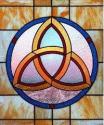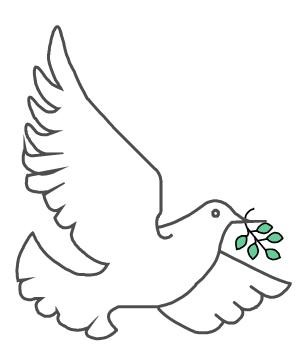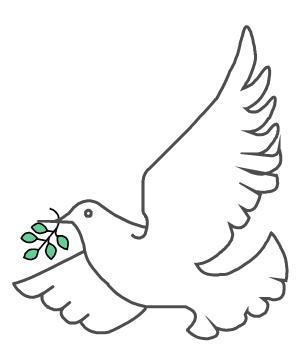|
Viewpoint from Rev James Stewart 24/05/2013
Revd James Stewart
Curate – Great Yarmouth Team Ministry
 On Sunday the Church celebrates the Holy Trinity: Father, Son and Holy Spirit. It is therefore fascinating just how many things seem to come in threes: blind mice, musketeers, wise men, little pigs, bad luck and (dare I say it!) sometimes – buses! Indeed, often we think in threes: every story must have a beginning, middle and end; every solid object has height, depth and length; and there are three primary colours (red, yellow and blue). Jesus’ ministry was three years long, he died at 3 o’clock under an inscription written in three languages, after Peter had denied him three times – and, of course, he rose again on the third day. So the Trinity is a delight for mathematicians but a headache for theologians and Viewpoint writers! Trinity Sunday can all too easily become a day for puzzle-solving or improving formulations already established. But there is more to Trinity Sunday than diagrams, three juggling balls or a shamrock leaf On Sunday the Church celebrates the Holy Trinity: Father, Son and Holy Spirit. It is therefore fascinating just how many things seem to come in threes: blind mice, musketeers, wise men, little pigs, bad luck and (dare I say it!) sometimes – buses! Indeed, often we think in threes: every story must have a beginning, middle and end; every solid object has height, depth and length; and there are three primary colours (red, yellow and blue). Jesus’ ministry was three years long, he died at 3 o’clock under an inscription written in three languages, after Peter had denied him three times – and, of course, he rose again on the third day. So the Trinity is a delight for mathematicians but a headache for theologians and Viewpoint writers! Trinity Sunday can all too easily become a day for puzzle-solving or improving formulations already established. But there is more to Trinity Sunday than diagrams, three juggling balls or a shamrock leaf
 We begin to realise the impossibility of ever doing God justice by talking about him. We ask too much of language when we expect it to carry this profoundest mystery of all. We have to accept that our knowledge of God is only partial, no matter how many thousands of books are written on the subject: that in describing God we only see ‘as though in a glass darkly’ We begin to realise the impossibility of ever doing God justice by talking about him. We ask too much of language when we expect it to carry this profoundest mystery of all. We have to accept that our knowledge of God is only partial, no matter how many thousands of books are written on the subject: that in describing God we only see ‘as though in a glass darkly’
St Augustine wrote of an encounter with a young boy who had dug a large hole on the beach and was running backwards and forwards from the sea with a bucket. St Augustine asked him what he was doing and the boy answered that he was going to put the ocean down the hole. St Augustine told the boy that the hole was not big enough. The boy replied: ‘Neither is your mind big enough to absorb all that there is to know about the Holy Trinity’ So we are in good company!
 Trinity Sunday means more than what we can’t say. This ‘more’ is about what we can do, indeed must do, if we are to live as Christians. The community of the Trinity gives us a pattern of relationship that speaks of how we are to be towards others and towards the world: a society of persons moving constantly out towards one another in self-giving, living and being in that perfect oneness we call love. In acts of love we can see God (through the incarnate Son) in one another. By connecting with one another through acts of kindness and love, sharing one another’s joys and sorrows and looking out for the downtrodden in our society – we join in the work of the Holy Trinity. As Christians we live ‘trinity-shaped’ lives, inspired by the love of God the Father, who created us in his own image, redeemed by God the Son, who died for us on the cross, and sustained by God the Holy Spirit, who is with us in our daily lives. It is my prayer this Trinity Sunday that we will continue to live this out in our community, demonstrating God’s love and presence among us Trinity Sunday means more than what we can’t say. This ‘more’ is about what we can do, indeed must do, if we are to live as Christians. The community of the Trinity gives us a pattern of relationship that speaks of how we are to be towards others and towards the world: a society of persons moving constantly out towards one another in self-giving, living and being in that perfect oneness we call love. In acts of love we can see God (through the incarnate Son) in one another. By connecting with one another through acts of kindness and love, sharing one another’s joys and sorrows and looking out for the downtrodden in our society – we join in the work of the Holy Trinity. As Christians we live ‘trinity-shaped’ lives, inspired by the love of God the Father, who created us in his own image, redeemed by God the Son, who died for us on the cross, and sustained by God the Holy Spirit, who is with us in our daily lives. It is my prayer this Trinity Sunday that we will continue to live this out in our community, demonstrating God’s love and presence among us
|
|
|
|